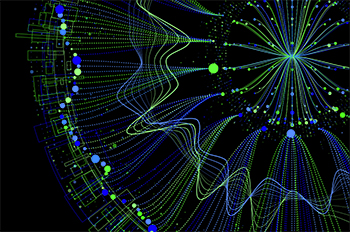
As massive cancer databases like The Cancer Genome Atlas (TCGA) proliferate and expand worldwide, WuXi NextCODE expects to see—and to drive—a boom in discoveries of cancer biomarkers that will advance our ability to treat cancer and improve outcomes for patients.
One of the fastest-growing areas in medicine today is the creation of massive cancer databases. Their aim is to provide the scale of data required to unravel the complexity and heterogeneity of cancer—the key to getting patients more precise diagnoses faster, and to getting them the best treatments for their particular disease.
In short, this data has the potential to save lives.
Such databases are not new, but they are now proliferating and expanding at an unprecedented pace. Driven by governments, hospitals, and pharmaceutical companies, they catalogue a growing range of genetic data and biomarkers together with clinical information about their effects on disease, therapy, and outcomes.
Only with such data can we answer the key questions: Does a certain marker suggest that a cancer will be especially aggressive? Does it signal that the tumor responds best to particular treatments? Are there new pathways involved in particular cancers that we can target to develop new drugs?
It’s the cutting edge of oncology, but to be powered to answer these questions, these databases have to be very, very big. They have to bring together whole-genome sequence data on patients and their tumors as well as a host of other ‘omics and biological data. One of the biggest challenges to realizing this potential is to manage and analyze datasets of that scale around the world. It’s one we are addressing in a unique manner through our global platform.
One of the most renowned and widely used of these is The Cancer Genome Atlas, a collaboration between the National Cancer Institute (NCI) and National Human Genome Research Institute (NHGRI). TCGA data is freely available to those who qualify, and there is a lot of it. It already comprises 2.5 petabytes of data describing tumor tissue and matched normal tissues for 33 tumor types from more than 11,000 patients. Researchers all over the world can apply to use this data for their own studies, and many have.
Yet asking questions of TCGA alone can take months for most groups and requires sophisticated tools. At Boston’s recent Bio-IT World conference, WuXi NextCODE’s director of tumor product development, Jim Lund, explained how we have put TCGA on our global platform—providing a turnkey solution with integrated analytics to transform the data into valuable findings.
Jim and his team have imported into WuXi NextCODE’s cloud platform virtually all key TCGA data: raw whole exome sequence data from patients and tumors, as well as variant calls using MuTect2 and Varscan2; RNA and microRNA sequence and expression data; and data on copy number variation, methylation arrays, and some 150 different clinical attributes. But this data isn’t just hosted in the cloud: it can all now be queried directly and at high speed online, enabling researchers to quickly ask and answer highly complex questions without having to download any data or provide their own bioinformatics software.
To demonstrate the power of this approach, Jim’s team decided to run the same queries in a recent published study that looked at sequence data from the exons of 173 genes in 2,433 primary breast tumors (Pereira et al., Nature 2016). They were specifically looking for driver mutations of cancer’s spread and growth. In a matter of minutes, rather than months, they were able to replicate key mutations identified in the study. That analysis was then extended to all cancer genes, and additional driver genes were found. More important, because they were able to correlate these mutations with clinical outcomes data, they were also able to begin systematically matching specific mutation patterns to patient outcomes.
Next, Jim’s team looked at the genomics of lung adenocarcinoma, the leading cause of death from cancer worldwide. Following up on the findings in another published study (Collison et al., Nature 2014), they profiled the 230 samples examined in the paper and immediately made several observations. Eighteen genes were mutated in a significant number of samples; EGFR mutations (which are well known) were more common in samples from women; and RBM10 mutations were more common in samples from men. These results were extended to 613 samples and shown to be robust. But because they had a wide range of data including mRNA, microRNA, DNA sequencing, and methylation, Jim’s team was further able to suggest some actual biological processes that may be fueling the origin and growth of lung adenocarcinomas.
What’s making this type of research possible? It’s our global platform for genomic data. The platform spans everything required to make the genome useful for helping patients around the world, from CLIA/CAP sequencing to the world’s most widely used system for organizing, mining, and sharing large genomic datasets. At its heart is our database—the Genomically Ordered Relational database (GORdb). Because it references sequence data according to its position on the genome, it makes queries of tens of thousands of samples computationally efficient, enabling the fast, online mining of vast datasets stored in multiple locations.
That’s how we are making the TCGA—and every major reference dataset in the world—available and directly minable by any researcher using our platform. Those users can combine all that data with their own to conduct original research at massive scale.
These breast and lung cancer studies are just two of more than a thousand that have been carried out so far on TCGA data. As more such datasets become available, we expect to see—and to drive—a boom in discoveries of cancer markers that will advance our ability to treat cancer and improve outcomes for patients. For those who want to go further still, our proprietary DeepCODE AI tools offer a means of layering in even more datasets to drive insights even deeper into the biology of cancer and other diseases. And that’s a topic I’ll return to in the weeks ahead.

